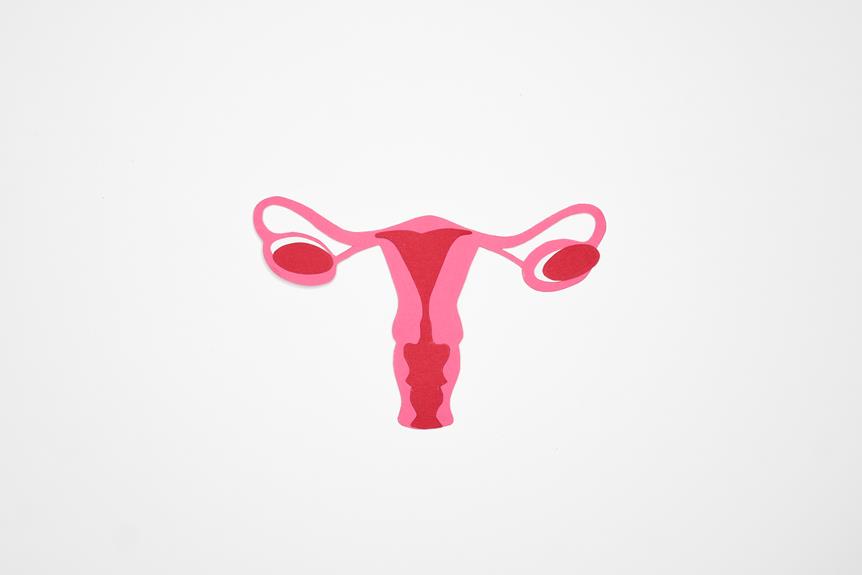How To Maintain Ovarian Health as You Age

In the journey of life, our ovaries symbolize the essence of womanhood, bearing the potential for fertility and hormonal balance. As we age, it becomes crucial to nourish and maintain the health of these vital organs.
This article explores the aging process and its impact on ovarian health, providing nutritional guidelines, lifestyle factors, and hormonal balance techniques to support their maintenance.
Let us embark on this empowering journey, serving our bodies with preventive measures and regular check-ups, ensuring optimal ovarian health.
Key Takeaways
- Hormonal changes occur as women age, leading to a decline in estrogen and progesterone levels, which can decrease fertility and increase the risk of reproductive disorders.
- Adhering to nutritional guidelines and including dietary supplements can optimize ovarian health by providing essential nutrients like folic acid, iron, and vitamin D.
- Lifestyle factors such as stress management, regular physical activity, and maintaining a healthy weight through diet and exercise significantly impact ovarian health.
- Proper hormonal balance is essential for optimal ovarian health, and natural remedies like dietary changes, stress management techniques, exercise, and herbal supplements can help restore hormonal balance.
Understanding the Aging Process and Its Impact on Ovarian Health
While the aging process can have a significant impact on ovarian health, understanding the biological changes that occur can help individuals make informed decisions for maintaining their reproductive well-being.
Hormonal changes play a crucial role in the aging process and can affect ovarian function. As women age, their hormone levels, including estrogen and progesterone, naturally decline. These hormonal changes can lead to a decrease in fertility and an increased risk of certain reproductive disorders, such as polycystic ovary syndrome (PCOS) and endometriosis.
Recognizing these changes can prompt individuals to consider fertility preservation options if they desire to have children in the future. By understanding the impact of hormonal changes on ovarian health, individuals can take proactive steps to preserve their fertility and make informed decisions about their reproductive choices.
Transitioning to the subsequent section, let’s explore the nutritional guidelines for supporting ovarian health.
Nutritional Guidelines for Supporting Ovarian Health
In addition to understanding the impact of hormonal changes, individuals can also optimize their ovarian health by adhering to nutritional guidelines and incorporating specific dietary habits, such as consuming adequate amounts of antioxidants and incorporating regular physical activity.
Nutritional guidelines play a crucial role in supporting ovarian health, and one way to ensure a balanced diet is to include dietary supplements. These supplements can provide essential nutrients that may be lacking in the diet, such as folic acid, iron, and vitamin D.
Additionally, incorporating regular exercise routines can also have a positive impact on ovarian health. Exercise helps to improve blood circulation, reduce inflammation, and support overall hormonal balance.
Lifestyle Factors That Influence Ovarian Health
Numerous lifestyle factors, such as diet, exercise, and stress levels, can significantly impact ovarian health and should be carefully considered in order to maintain optimal well-being.
When it comes to maintaining ovarian health, stress management plays a crucial role. High levels of stress can disrupt hormonal balance, affecting the regularity of menstrual cycles and ovulation.
Exercise benefits not only overall health but also ovarian health. Regular physical activity can help regulate hormone levels, improve blood circulation to the ovaries, and reduce the risk of developing polycystic ovary syndrome (PCOS), a common condition that affects fertility.
Additionally, maintaining a healthy weight through proper diet and exercise can help reduce the risk of ovarian disorders such as ovarian cysts and ovarian cancer.
Hormonal Balance and Its Role in Ovarian Health Maintenance
Proper hormonal balance is essential for maintaining optimal ovarian health and plays a crucial role in supporting overall well-being. Hormonal imbalances can lead to a variety of symptoms and health concerns, including irregular periods, mood swings, fatigue, and fertility issues. It is important to address hormonal imbalances promptly to prevent further complications and promote long-term health.
Fortunately, there are natural remedies that can help restore hormonal balance and support ovarian health. These remedies include dietary changes, stress management techniques, regular exercise, and herbal supplements. A balanced diet rich in fruits, vegetables, whole grains, and lean proteins can provide the necessary nutrients to support hormonal health.
Stress management techniques, such as meditation and yoga, can help regulate hormone levels and reduce the impact of stress on the body. Regular exercise, such as walking or swimming, can also help balance hormones and improve overall well-being.
In addition, certain herbal supplements, such as chasteberry, maca root, and black cohosh, have been found to be beneficial for hormonal balance. These natural remedies can help regulate hormone production and alleviate symptoms of hormonal imbalances.
Preventive Measures and Regular Check-ups for Ovarian Health
Regular check-ups and preventive measures are essential for maintaining optimal ovarian health and early detection of any potential issues. By taking proactive steps, women can reduce the risk of infertility and ensure early intervention if any problems arise.
Here are four key measures to prioritize for ovarian health:
- Regular gynecological check-ups: Schedule annual visits to your gynecologist for comprehensive examinations, including pelvic exams and screenings for ovarian cancer.
- Awareness of symptoms: Familiarize yourself with the signs of ovarian disorders, such as irregular periods, pelvic pain, and changes in menstrual flow, and promptly seek medical attention if you experience any of these symptoms.
- Healthy lifestyle choices: Maintain a balanced diet rich in fruits, vegetables, and whole grains, engage in regular exercise, and avoid smoking and excessive alcohol consumption to support overall reproductive health.
- Genetic testing: Consult with your healthcare provider about genetic testing to assess your risk for hereditary conditions that may impact fertility, such as BRCA1 and BRCA2 gene mutations.
Frequently Asked Questions
What Are the Common Symptoms of Ovarian Aging and How Can They Be Managed?
Common symptoms of ovarian aging include irregular menstrual cycles, decreased fertility, and hormonal imbalances. These symptoms can be managed through lifestyle changes, such as a healthy diet and regular exercise, as well as natural remedies like herbal supplements and acupuncture.
Are There Any Specific Foods or Supplements That Can Help Improve Ovarian Health?
Fertility boosting foods and natural supplements can be beneficial for maintaining ovarian health. While there are no specific foods or supplements that guarantee improvement, a well-balanced diet rich in antioxidants and nutrients can support overall reproductive health.
How Does Stress Affect Ovarian Health and What Can Be Done to Minimize Its Impact?
Stress can have negative effects on ovarian health. To minimize its impact, stress management techniques and lifestyle changes are crucial. These can include regular exercise, proper sleep, relaxation techniques, and seeking support from loved ones or professionals.
Can Hormonal Imbalances Be Reversed or Managed Naturally to Support Ovarian Health?
Hormonal imbalances can be managed naturally to support ovarian health through natural remedies and lifestyle changes. These approaches may help restore hormonal balance, optimize reproductive health, and promote overall well-being.
What Are Some Alternative Therapies or Treatments That Can Help Maintain Ovarian Health as You Age?
Acupuncture therapy and yoga can be alternative therapies to help maintain ovarian health as you age. These methods have been shown to support hormone balance and reduce stress, which are important factors in maintaining optimal ovarian function.









